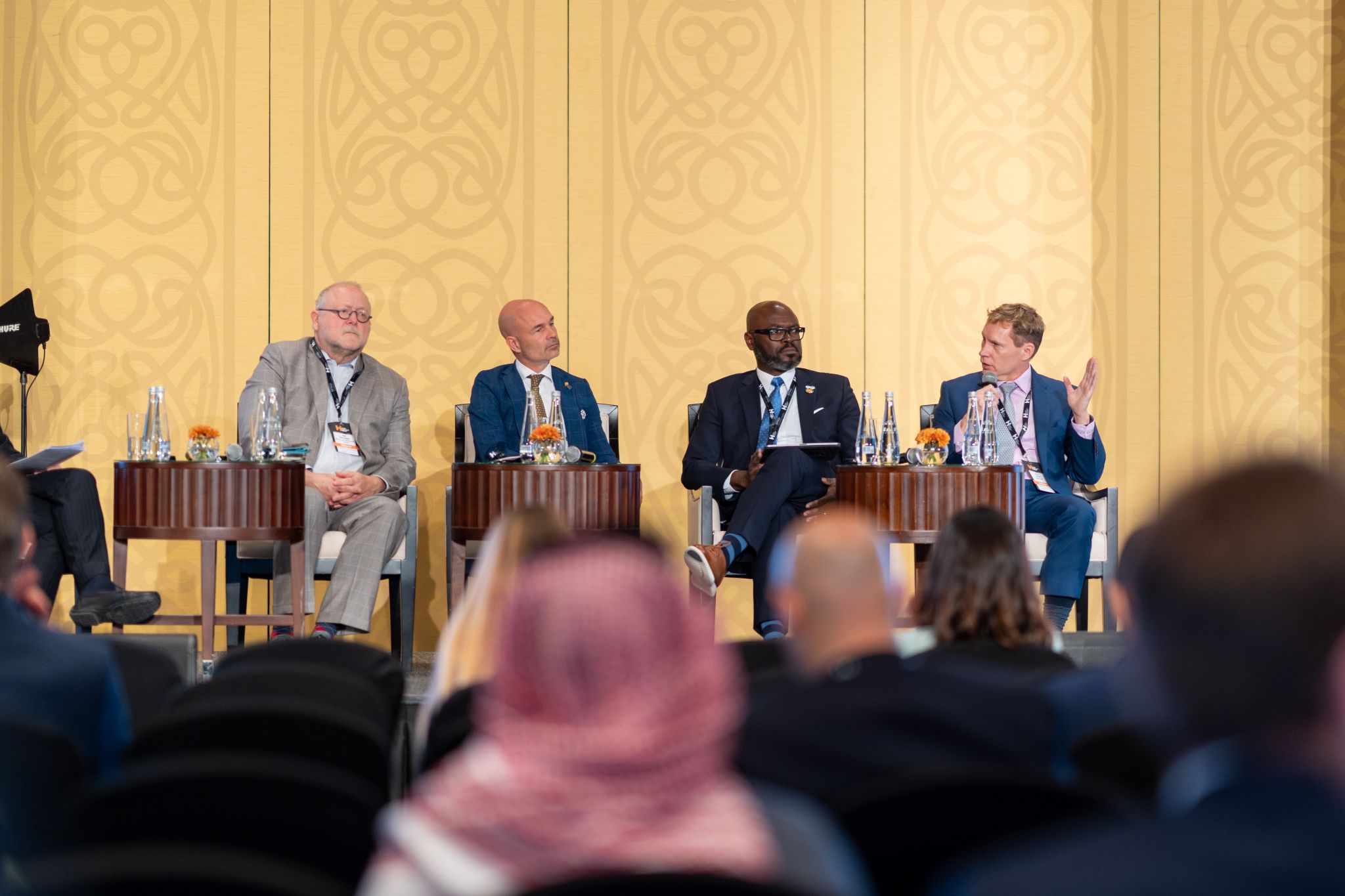
Abu Dhabi Sustainability Week (ADSW) set the stage for one of the year’s most important conversations on clean energy and carbon markets. Taking place from January 12-18, the event brought together global leaders, industry pioneers, and policymakers to tackle the challenges and opportunities of the energy transition. ZETA (Zero Emissions Traders Alliance) was privileged to take part in this high-profile gathering, engaging in key discussions at both the World Future Energy Summit and Carbon Forward Middle East 2025.
A highlight of the summit was the International Renewable Energy Agency (IRENA) Green Hydrogen Workshop, which provided critical insights into the future of low-carbon hydrogen. Sponsored by the EU-GCC Cooperation on Green Transition, the workshop featured three expert panels, opening with remarks from Spyros Kouvelis, Team Leader of the initiative.
In a separate closed-door session, industry executives from Fertiglobe, Scatec ASA, Uniper, and others gathered to discuss the challenges of large-scale offtake agreements. Nicolas Groues, Managing Consultant at Wood Mackenzie, led the discussion, which delved into the real cost dynamics of the hydrogen sector. ZETA’s Secretary General, Jan Haizmann, joined a roundtable discussion, sharing insights on the market’s trajectory and financial viability.

Running parallel to the summit, Carbon Forward Middle East 2025 provided a critical forum on compliance carbon market developments across the region. The event featured high-level networking and in-depth sessions on regulatory frameworks, carbon pricing mechanisms, and market dynamics.
ZETA also participated in World Hydrogen MENA 2025 in Dubai, a three-day deep dive into the hydrogen industry. The conference opened with a ‘Leadership Address: Beyond Oil’, moderated by Frank Wouters, Chairman of the MENA Hydrogen Alliance.
ZETA’s Jan Haizmann took the stage to address market creation challenges for new fuels, stressing that carbon pricing remains the key driver. He highlighted the importance of compliance systems and quotas in fostering demand and expressed optimism about a global carbon market under UN Article 6, which could provide the infrastructure needed for hydrogen trading.
Among other key discussions:
With events like these shaping the global energy conversation, ZETA remains committed to advancing clean energy and carbon trading solutions. As 2025 unfolds, the organization continues to engage in pivotal discussions that will define the future of sustainable markets.